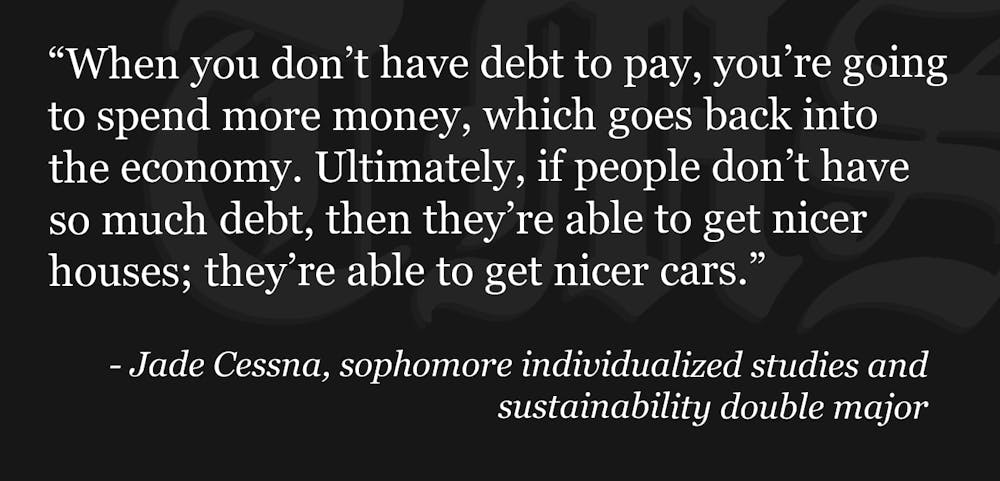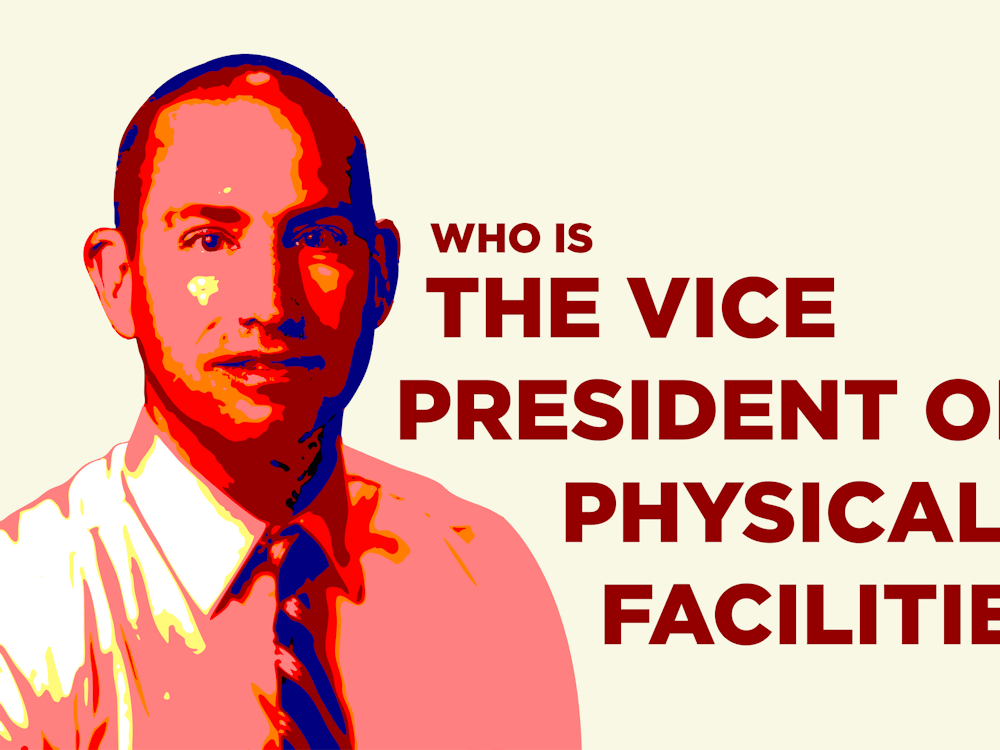President Joe Biden’s latest stimulus package did not include forgiveness for student loans, but it did include legislation that could open doors for student loan forgiveness in the future.
In addition to the $1,400 stimulus checks, the stimulus package, called the American Rescue Plan, includes a tax exemption for student loan forgiveness until January 1, 2026.
Typically, student loan forgiveness is added into taxable income, sometimes making it unaffordable to pay.
Steven Elliott, acting chair of the department of economics at Miami University, said the tax exemption is a step in the right direction.
“It’s a way to reduce some of the burden of that loan on students without making it completely go away,” Elliott said. “It is a preliminary step that the government says, ‘We understand and want to encourage people to get an education, and we want to give them loans, and we don’t want to make these loans onerous to people who get them once they get a job.’”
According to Collegefactual.com, 40% of incoming first-years and 33% of all undergraduate students at Miami University take out student loans to help pay for college.
Graduates usually have to start paying back their student loans six months after graduating, which Elliott said can be difficult in today’s job market.
“If you graduate and don’t find a job right away, you still have to start paying off your loans … and that puts a real burden on people,” he said.
Jade Cessna, a sophomore individualized studies and sustainability double major, said she had to take out student loans because her parents wouldn’t help her pay for college.
“Neither of my parents’ parents … were able to help with [my parents’] college, which is why my parents waited to go to college until they were adults and had a stable income,” Cessna said. “My parents had the same philosophy, and they want me to pay for my college, so I’ve taken out loans I can pay off in the future.”
Cessna said student loan forgiveness would be beneficial to her, as it would relieve a lot of financial stress.
“It would affect my stress levels, especially when it comes to finances — that is always in the back of my head,” she said.
Enjoy what you're reading?
Signup for our newsletter
Cessna also thinks student loan forgiveness could help stimulate the economy.
“When you don’t have debt to pay, you’re going to spend more money, which goes back into the economy,” Cessna said. “Ultimately, if people don’t have so much debt, then they’re able to get nicer houses; they’re able to get nicer cars.”
There are many arguments for and against student loan forgiveness. Elliott said the main argument for forgiveness is it would take the financial burden off borrowers. The main argument against forgiveness, though, is one of fairness: Why should some people receive a government subsidy for their education while others paid off their loans?
Biden has expressed interest in a student loan forgiveness bill that would forgive up to $10,000 in student loans for each borrower.
Elliott agrees that the high cost of higher education is an issue, but there are other solutions besides student loan forgiveness to lessen the financial strain on students.
“I’m not sure that loan forgiveness is the final solution,” Elliott said. “There are lots of possibilities, including instead of giving that subsidy to people in terms of student loans, you could give that to educational institutions as reductions in tuition.”
The American Rescue Plan includes $35 billion allocated for public colleges and universities, Minority Serving Institutions and Historically Black Colleges and Universities. This money is meant to help these institutions reopen, as well as offer financial aid to students.
Student loan forgiveness would not directly impact Miami as an institution, but it would help many of its students.
“Higher education, whether at Miami or elsewhere is a hugely expensive undertaking,” Elliott said, “and I think the people of Miami would argue that we don’t want to have our graduates going out into their futures with a huge chunk of debt on them.”




